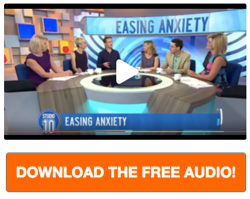Anxiety disorder or panic attack has been used loosely in recent years. Sometimes, people tag their nervous reactions to stimuli as anxiety attacks. There may be cases where the assumptions are valid, and the person is indeed suffering from anxiety attacks. But there are people that mistake normal anxious reaction to a perceived threat as a symptom of a lasting disorder. There’s a very thin line between justified anxiety and the anxiety that stems from imaginary causes. Some people couldn’t tell the difference, hence the need for professional help.
Before you can confirm for sure whether you have an anxiety disorder or not, you need to take a valid anxiety test. Like any kind of disorder, whether physical or psychological, there has to be benchmark for assessing whether the person is a candidate for treatment.
What is a Reliable Anxiety Test?
A reliable anxiety test would be something that your psychologist recommends. I’m not saying self-diagnosis is impossible, as there are many different tests out there that you can take to find out if you need treatment or not. It’s just that you would still need the confirmation from a licensed physician before you can come up with a feasible plan for battling this disorder.
There are many types of anxiety disorders, so a reliable test must not only zero in on the symptoms, but also give clues on what type of anxiety disorder the person is suffering from. It will be easier for the psychologist to prescribe a treatment if the test results point to a specific type of anxiety disorder. The more specific the symptoms are, the better for the patient.
There are some tests that can diagnose a specific type of anxiety disorder. One of the easiest types of this disorder to diagnose is social anxiety. With social anxiety, a specific parameter is needed for the symptoms to crop up. When the trigger is gone, the person does not experience the same symptoms. Self consciousness around other people and the anxiety about interacting with others in a social setting can be clues that the psychologist can use for diagnosis.
Some types of anxiety disorders are difficult to diagnose, like generalized anxiety disorder, which can be triggered by random stuff. But with enough tests and good cooperation on the part of the patient, this can be done.
The Role of Honesty and Acceptance in Diagnosis
The importance of acceptance and honesty cannot be emphasized enough when it comes to diagnosis for mental disorders. Basically, the person will never be cured if he doesn’t answer all the questions honestly. Some people lie during the anxiety testing because they are afraid of ridicule and judgement. They may also have feelings of shame about their fears.
Acceptance that you may have an anxiety disorder is the first step to real treatment. Only when you answer a reliable anxiety test correctly can you be treated. Self help methods like Linden and panic away are around to help you get over your anxiety, so you have options if you don’t want to go for therapy yet.
